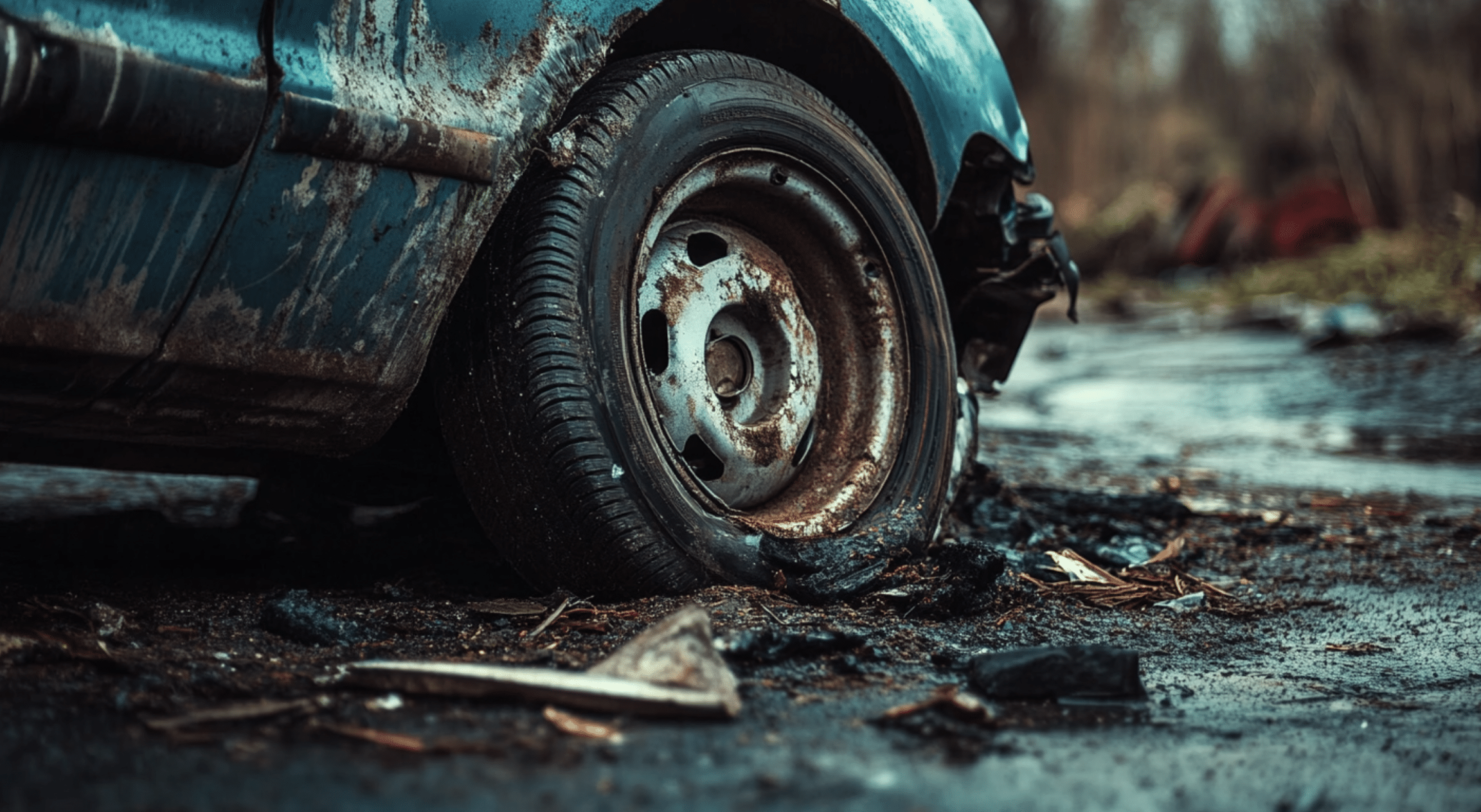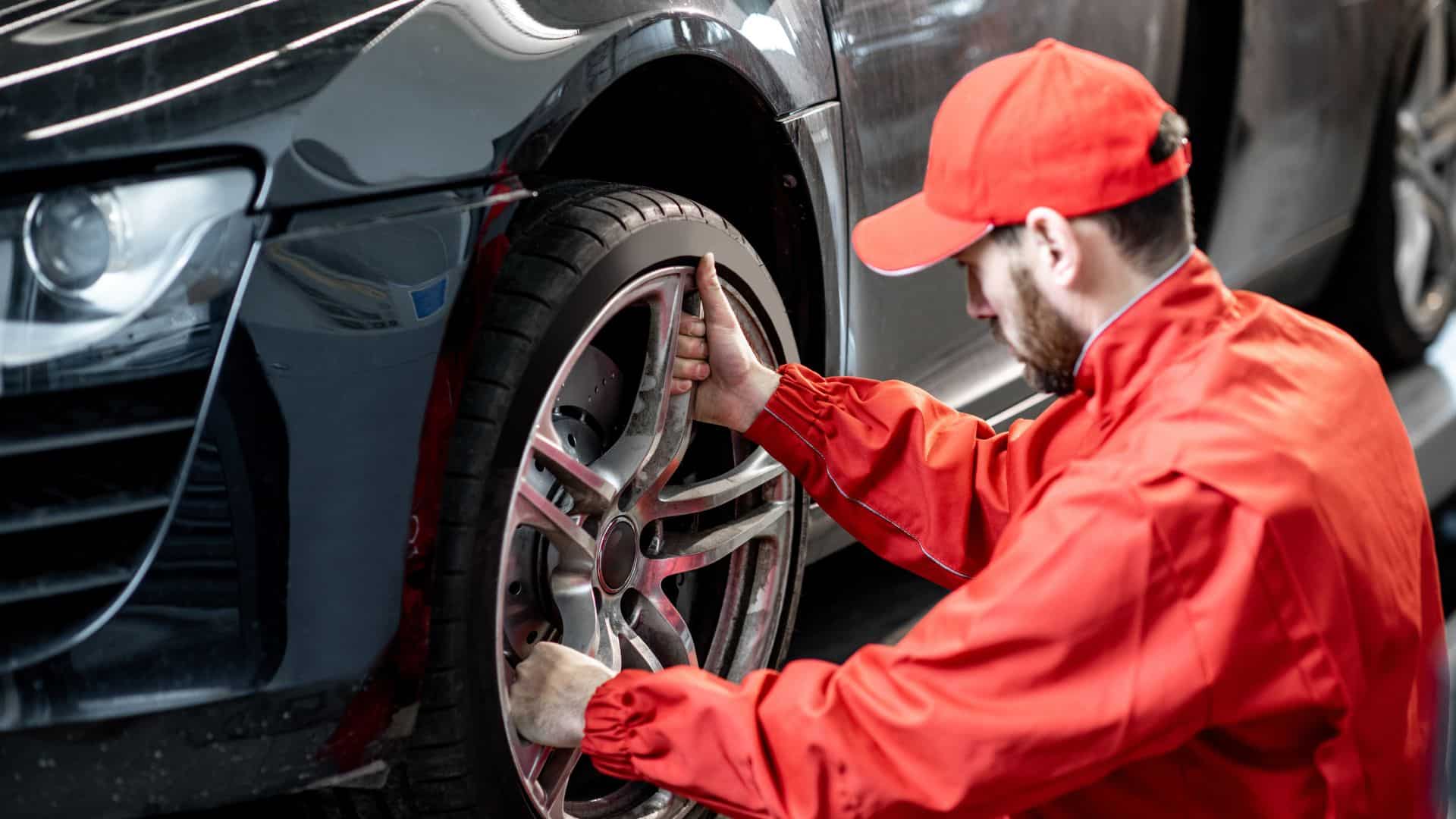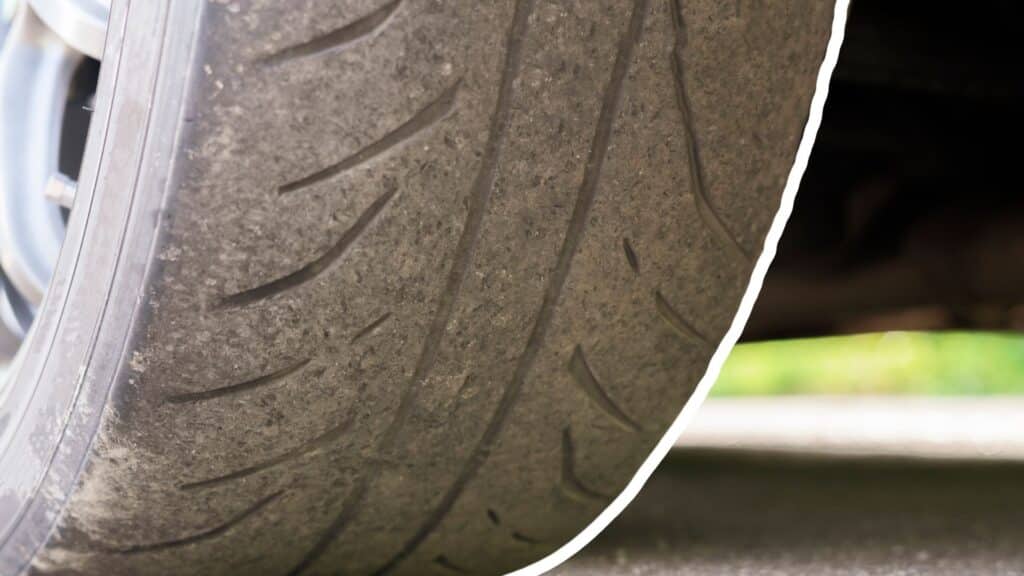Wheel bearings are vital for your car’s smooth operation. These small parts allow wheels to spin freely while supporting your vehicle’s weight.
But like any component, wheel bearings can wear out over time. If ignored, many drivers find it hard to spot signs of failing wheel bearings, leading to costly repairs and unsafe driving.
This guide will help you identify the key signs of wheel-bearing problems.
You’ll learn about signs, what causes wheel bearings to fail, and how much replacements typically cost.
By the end, you’ll have the know-how to keep your car running safely and smoothly. Understanding these signs can save you money and prevent potential road hazards.
Understanding Wheel Bearings
Wheel bearings are key parts of your car that you might not consider. Small but mighty components sit between the wheel and the axle.
Their main job? Let your wheels spin freely while carrying the weight of your car.
Think of wheel bearings as the unsung heroes of smooth driving. They work hard to reduce friction as your wheels turn.
This means less wear and tear on your car parts and better fuel efficiency. Without good wheel bearings, your ride would be rough and noisy.
Wheel Bearing Replacement Cost
Replacing a wheel bearing can be pricey, but it’s a must for safe driving.
On average, you’ll pay about $350 per wheel, including parts and labor. Keep in mind that this is just a ballpark figure. Your actual cost might be higher or lower.
Several factors can affect how much you’ll pay. These factors are:
| Factor | Impact on Cost |
|---|---|
| Vehicle Type | Luxury cars often have higher repair costs due to more expensive parts and the need for specialized tools or knowledge. |
| Bearing Location | Front-wheel bearings are typically more expensive to replace than rear ones due to more complex designs and harder access. |
| Labor Rates | Costs vary by shop and location, with dealerships usually charging more than independent mechanics. |
| Bearing Type | Some vehicles use complex, sealed-bearing units that are more expensive to replace, while older cars may use simpler, cheaper bearings. |
| Additional Damage | The total repair cost will increase if other parts, like the hub or CV joint, are damaged. |
| Urgency | Emergency repairs can be more costly than scheduled maintenance due to the need for immediate attention. |
Signs of a Failing Wheel Bearing
Your car can tell you when something’s wrong. There are several signs to watch out for when it comes to wheel bearings. Let’s go through them:
1. Unusual Noises
Listen for grinding, humming, or growling sounds. These noises often get louder as you speed up. They might change when you turn left or right.
If you hear a sound that reminds you of a worn-out fan belt, it could be your wheel bearing. These noises are often most clear when you’re driving at a steady speed on a quiet road.
2. Steering Wheel Vibration
Feel your steering wheel. Does it shake more than usual? This is most clear at higher speeds or when you’re turning.
A bad wheel bearing can cause this extra vibration, which might become more intense the faster you go.
3. Uneven Tire Wear
Take a look at your tires. Are they wearing out faster on one side? This could mean your wheel bearings are failing.
It causes the wheel to sit at an odd angle, leading to uneven wear. Regular tire rotations can help you spot this issue early on.
4. Vehicle Pulls to One Side
When you brake, does your car pull to one side? This might be a sign of a failing wheel bearing.
It can make your brakes work unevenly, causing the pull. This pulling can be subtle at first but may get worse over time.
5. ABS Warning Light
Keep an eye on your dashboard. If the ABS light comes on, it could be due to a faulty wheel bearing. Many cars have speed sensors built into the bearing.
When it fails, it can trigger this warning. Please don’t ignore this light; it affects your car’s safety systems.
6. Excessive Play in the Wheel
Try to wiggle your wheel when the car is jacked up. If there’s too much movement, your bearing might be worn out.
A good wheel bearing should keep the wheel firmly in place. A mechanic best does this check during routine maintenance.
How Long Do Wheel Bearings Last?
Wheel bearings are tough little parts, but they don’t last forever. Most wheel bearings are built to go the distance. On average, they should last between 85,000 to 100,000 miles. That’s a lot of road trips!
If conditions are just right, some might even last the lifetime of your car. But don’t just set your odometer and forget about it. These numbers are just a general guide.
Some bearings might need replacing sooner, while others could keep going strong past the 100,000-mile mark.
Causes of Wheel Bearing Failure

Understanding why wheel bearings fail can help you prevent issues. Let’s look at the main reasons:
1. Environmental Factors
The world outside can be tough on your car’s wheel bearings. Rough roads are a big culprit. Every bump and jolt stresses these small parts.
Potholes are especially hard on wheel bearings. Hitting one is like a mini-crash for these parts. Even small potholes add up over time.
Water is another enemy of wheel bearings. Driving through deep puddles or flooded areas can let water in, washing away the grease in your bearings and leading to rust.
Off-road driving kicks up dirt, which acts like sandpaper and can damage your bearings. Be extra careful if you live near the coast or in road salt areas. Salt speeds up rust and can eat away at your bearings.
2. Improper Installation
Sometimes, the problem starts before you even hit the road. Incorrect installation is a common cause of early bearing failure. Using the wrong tools can damage bearings during installation.
Tightness is crucial—bearings need to be tightened just right. Too tight, and they can overheat and wear out quickly. Too loose, and they’ll move around too much, causing damage.
Contamination during installation can cause problems later on. If dirt gets in, it can lead to early failure. Misalignment is another issue.
If not lined up perfectly, bearings will wear unevenly and fail early.
3. Lack of Maintenance
Regular checks can catch problems early. Without them, small issues become big ones. Skipping inspections means missing early signs of wear.
Are those weird sounds your car makes? They’re often early warning signs that shouldn’t be ignored.
Neglecting seals is another common mistake. Damaged seals let in dirt and water, speeding up wear. Some bearings need regular greasing, and forgetting this leads to wear faster.
Don’t overlook wheel alignment, either. Poor alignment puts extra stress on your bearings.
Why Immediate Attention is Necessary

1. Potential Consequences
Driving with a bad wheel bearing is risky. As the bearing wears down, your wheel can wobble, making your car harder to control.
In extreme cases, a completely failed bearing can cause your wheel to lock up or even break free from your car.
A failing bearing affects your car’s handling. Your steering might feel loose, or your car could pull to one Side. This makes it harder to avoid road hazards or react to sudden situations.
In bad weather, these problems get even worse.
2. Cost Implications
Delaying wheel bearing replacement can lead to bigger, costlier problems. A failing bearing can damage parts like CV joints or your transmission.
These repairs are much more expensive than replacing a wheel bearing.
A bad bearing also causes uneven tire wear, meaning you might need new tires sooner than expected. Plus, the longer you wait, the more likely you’ll need a tow truck, adding to your costs.
Regular maintenance checks can catch bearing problems early, saving you money in the long run.
If you notice any signs of a failing wheel bearing, it’s best to get it checked out promptly. Your wallet – and your safety – will thank you.
Conclusion
Wheel bearings are vital for your car’s safety and smooth operation.
You can keep your vehicle running well by recognizing signs of failure, understanding wear causes, and knowing the importance of timely replacement.
Unusual noises, steering vibrations, or uneven tire wear are key signs your bearings might need attention.
Don’t ignore these warnings – prompt action can prevent costly repairs and road dangers. While bearings are built to last, driving conditions and maintenance affect their lifespan.
If you’re unsure about your wheel bearings, consult a professional mechanic. Regular check-ups can catch issues early, keeping your car reliable.
Remember, the cost of preventive maintenance is often less than the cost of major repairs.
Stay safe on the road by keeping your wheel bearings in good shape!
Frequently Asked Questions
Can Hitting a Pothole Destroy My Wheel Bearing?
Absolutely! A single hard hit to a pothole can damage or even immediately destroy a wheel bearing. Drive carefully on rough roads.
Can a Wheel Bearing Fail without Making Any Noise?
Yes, it can! Some bearings fail silently. Regular inspections are crucial, as you might not always hear trouble coming.
Can Off-Roading Ruin My Wheel Bearings Faster?
Absolutely! Off-road adventures are tough on bearings. Dirt, water, and impacts can significantly shorten their lifespan. Regular checks are a must for off-roaders.

